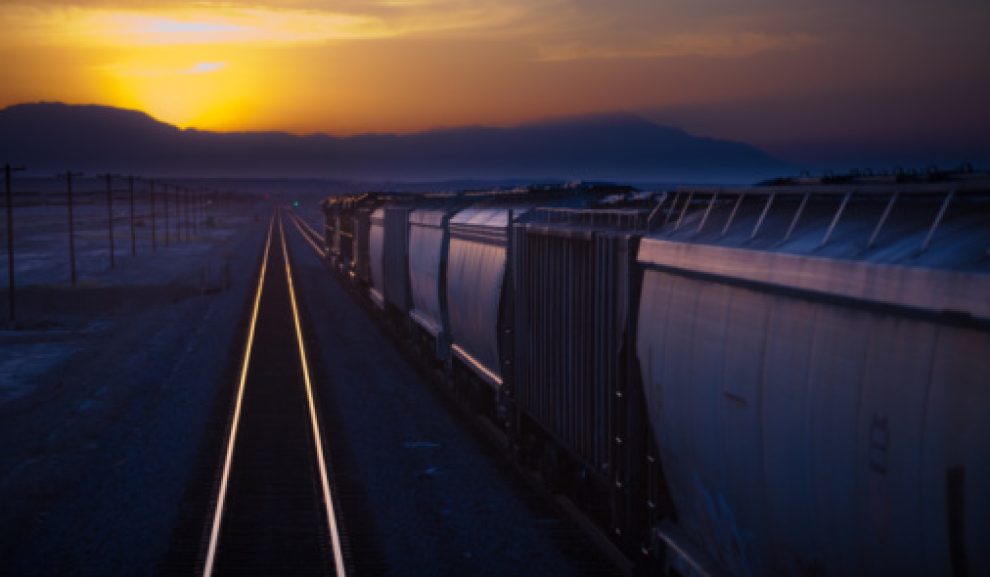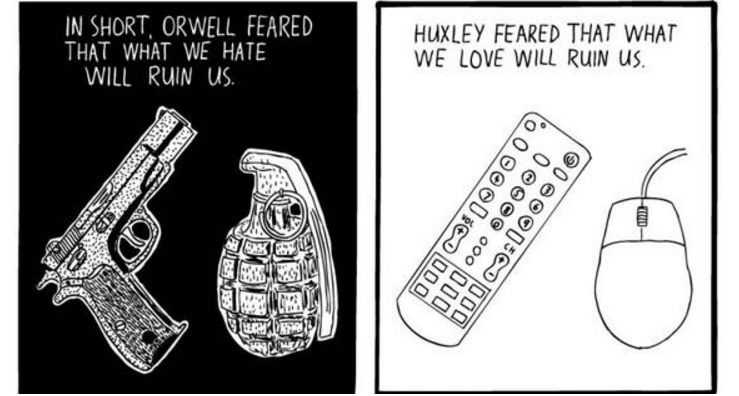Whips and chains or mindless, moronic diversion and psychotropic drugs? Which works better to enslave a population? From James Kullander at lewrockwell.com:
“And if ever, by some unlucky chance, anything unpleasant should somehow happen, why, there’s always soma to give you a holiday from the facts. And there’s always soma to calm your anger, to reconcile you to your enemies, to make you patient and long-suffering.” – Aldous Huxley, Brave New World
“If you want a picture of the future, imagine a boot stamping on a human face—forever.” – George Orwell, Nineteen Eighty-Four
Soon after the publication of George Orwell’s novel, Nineteen Eighty-Four, his publisher sent a copy of it to Aldous Huxley, author of Brave New World. Orwell’s book describes a dystopian hell realm of a world ruled by an invisible yet omniscient “Big Brother,” whose minions keep the masses in check with twenty-four-hour surveillance everywhere, even in one’s home and with threats of violence should any “prol” (short from proletarian) disagree with, and part from, the one and only totalitarian narrative and its demands. Having read that novel years ago, I reread it recently because I recalled that it had quite accurately described back in 1949 when it was first published much of what’s happening in the world today.
Brave New World was published in 1932, 17 years before Orwell’s Nineteen Eighty-Four. A lot had happened in the world in those 17 years: the Great Depression, the fascist overthrow of Spain at the end of the Spanish Civil War, and WWII. Orwell, an Englishman, had joined the International Brigades to fight against Francisco Franco and the Nationalists. Orwell was wounded in a battle in the Spanish countryside—shot in the neck—only later to be hounded and hunted in the littered streets of Barcelona during skirmishes between different factions of the Spanish Republican Army as it met its violent demise. It is said that some of what Orwell experienced and witnessed during those years—the relentless and bogus propaganda coming from both sides, the frenzied destruction of churches and the killing of priests and nuns, the fanatical in-party fighting among those who were supposed to be compatriots, and a “general ‘bourgeosification,’ a deliberate destruction of the equalitarian spirit”—had found its way into his Nineteen Eighty-Four.

